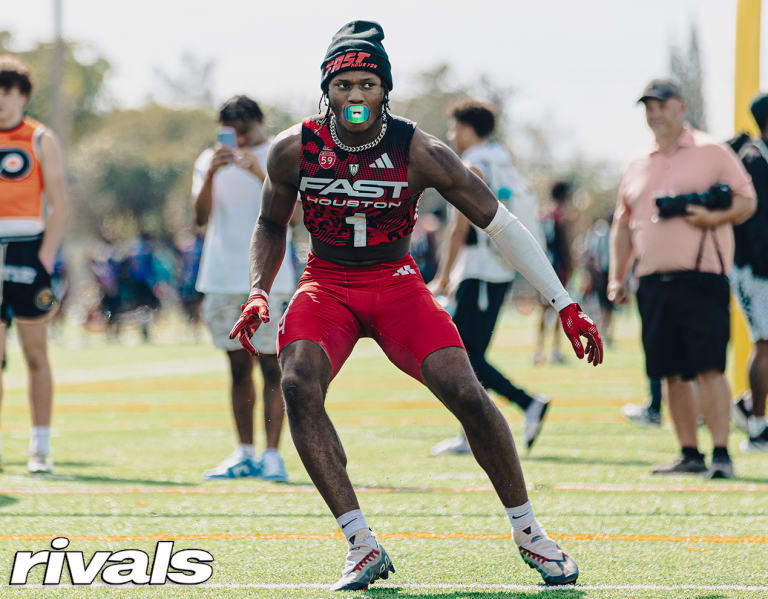Trey McNutt knew there would be consequences for breaking the rule against playing 7-on-7 for players that live in Ohio. The four-star defensive back played with the Fast Houston team in the Battle Miami tournament in January and he plans to play again at this weekend’s USA Flag 7-on-7 tournament in Los Angeles.
The suspension he received from the Ohio High School Athletic Association is two games and counting, according to McNutt.
“I kind of was like, ‘oh.’ I was upset but at the same time I was like, ‘bet’ because the rule isn’t right. And I’m different,” McNutt said. “I’m not going to let things stand that’s not right. So when they did put that on me even before that I was always like, ‘Do I want this rule to change?’ So I’ve been planning for it.”
To many, this set of rules is antiquated and needs to be changed. The actual rule, according to the OHSAA, is clear. Ohio high school football players are not allowed to play 7-on-7:
A member of an interscholastic football team may not participate in an athletic contest with a non-interscholastic team in that same sport between August 1 and May 14. Any contact football, flag football, touch football and arena football are examples of non-permissible events. A member school or program or team in the sports of football may participate with a non-interscholastic program in camps, tryouts, training and/or practices prior to and after the interscholastic team’s season under the following conditions: a.) They may not play in any contest, including 7-on-7 (except between May 15 and July 31). b.) All activities must be non-contact. c.) The only football equipment the player may wear are helmets and cleats.
From May 15 to July 31, a member of an interscholastic football team may participate in an athletic contest, a tryout or any type of team or group training or practices with a non-interscholastic team provided all participation is non-contact and the only football equipment being worn are helmets and cleats. This would include 7-on-7 participation.
Doug Ute, the executive director for the OHSAA, said a rule change is under consideration.
“That’s a rule that’s in our general sports regulations for football,” he said. “I would just say that we have been in conversation the last couple years with our member schools, our coaches association, to evaluate those offseason participation opportunities for student athletes. One of the things we did was move our June 1 date to May 15. That would help some of those combines that are out there.
“Most schools are getting out to the middle of May anyhow. So they’re starting their summer there. That is something we did to modify that. We’re continuing to have those discussions about what other opportunities should our student-athletes be afforded in the offseason. Particularly with football.”
McNutt has reasons for challenging this rule and he’s paving the way for other football players coming after him.
His own recruitment isn’t in any danger because of this, either. He’s the top defensive player in Ohio with more than 30 scholarship offers from around the country. He’s ranked No. 32 in the Rivals250 and will be the No. 3 safety prospect in the nation when those rankings get released Thursday.
McNutt told Rivals that he’s heard from several high school football players and they applaud him taking a stand.
The defender also told Rivals that participating in 7-on-7 so far has befitted him in many ways, especially getting outside of his state to play different competition.
Where this story goes from here is still up in the air. McNutt says he will continue to play 7-on-7 and live with the consequences. He and his family are hoping for a rule change. The door is also not closed on McNutt playing his senior year outside of Ohio if the suspension holds.
But a change in policy could be on its way.
“”Yeah, oh, absolutely. 100%,” Ute said. “The one thing I would tell you that there’s really no movement on is if schools or coaches want spring football here in Ohio. That’s not an option. But what a student-athlete does in the offseason that our other sports can do is certainly something we need to really continue the discussions and make some movement to allow our kids those opportunities in the offseason.
“We have to follow our regulations, which we’re following. But that’s not to say that something couldn’t be done in the future.”




